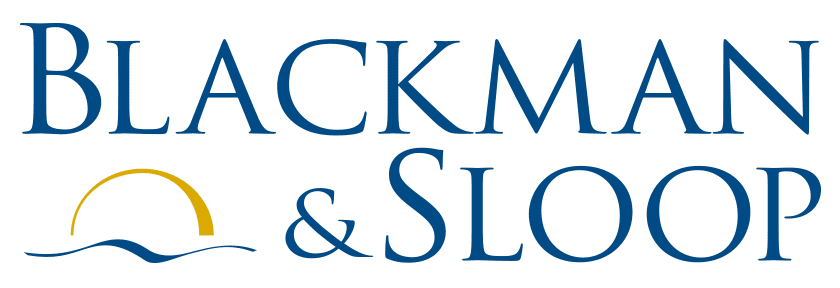Governance – Still High on the IRS Radar Screen: Audit Checklist on Governance Now in Service*
By R. Michael Sorrells, CPA
By now, it should come as no surprise that nonprofit governance is high on the list of IRS interest areas. This interest has, of course, been spurred on by Senate Finance Committee hearings and some highly publicized exempt organization governance failures which helped to put a black mark on the entire nonprofit sector. However, Congress was not able to (or chose not to) pass any legislation mandating particular governance structures or policies. A backdoor, friendlier approach was taken instead. In its major revision of the Form 990, the IRS now asks a significant number of questions about governance, policies and disclosures. Although almost all of these questions have no right or wrong answer legally, most organizations have strived to answer most in a way that creates the best image of the organization as a well-governed entity. Since the Form 990 is a public document, this is probably a wise course of action. It is also easy to imagine that a lot of no answers to what are essentially best practice questions might encourage the IRS to send its auditors around.
As part of this new emphasis on good governance, the IRS has now mandated that a governance checklist be completed by its revenue agents as part of every examination of 501(c)(3) public charities (after September, 2009). The stated purpose of this checklist is to provide data for a long term study. Whether or not that study will lead to legislation or more detailed guidance is certainly subject to conjecture.
The checklist has 28 questions and a four-page set of instructions for the agent. While a lot of these questions mirror those already on the Form 990, some go a little deeper in detail and others are entirely new. Key questions and areas include:
• Does the organization have a written mission statement that reflects its current 501(c)(3) purpose? Agents are instructed to answer “no” if there is no mission statement or the mission statement is not aligned with the current activities of the organization.
• In addition to asking to whom the organization’s articles and bylaws are provided and how large is the governing body, it asks if the bylaws have requirements as to the board’s composition, duties, qualifications and voting rights.
• How often did a quorum of the board meet during the year and how often did the full board meet? It follows this by asking if the number of meetings met or exceeded the meeting requirements of the bylaws.
• With regard to compensation for officers, directors and key employees, the questions about advance approval and documentation by an independent authorized body and use of comparability mirror similar questions on the new Form 990. However, the checklist goes on to ask exactly what kinds of organizations are used for comparison (exempts, government, for-profit, etc.)
• Does effective control of the organization rest with a single person or select few individuals? The agent instructions say that this should be answered “yes” if the board typically defers to a small group or an individual on the board—seemingly a subjective question for the agent to answer. As with the Form 990, disclosure of business and family relationships among board members is required.
• In addition to the now standard Form 990 question about having a written conflict of interest policy and whether annual disclosures are required, the checklist asks if the policy addresses recusals. If there were any actual conflicts disclosed, was the organization’s policy adhered to?
• In the area of financial oversight, questions address policies and procedures to assure that assets are used consistent with the organization mission. How often did board members get written reports on financial activities and how often were finances discussed?
• Was an independent accountant’s report issued and was it discussed by the board? Was a management letter issued and was it reviewed by board or committee? Were any of the accountant’s recommendations adopted?
• Is there is a document retention and destruction policy (same as the Form 990 question) and did the organization adhere to the policy?
• The checklist concludes by asking if the examination was hindered by a lack of necessary documentation.
Conclusion: This checklist provides excellent insight into what the IRS may consider as the most significant governance issues. It certainly delves much deeper than the Form 990 questions with which many organizations wrestled. Charities may wish to complete this checklist on their own as a self-assessment tool, to see how they might stack up in an audit situation. The complete checklist and agent instructions are available at http://www.irs.gov/charities/article/0,,id=216068,00.html.
*This article originally appeared in BDO USA, LLP’s “Nonprofit Standard” newsletter (June 2010). Copyright © 2010 BDO USA, LLP. All rights reserved. http://www.bdo.com/
About Blackman & Sloop CPAs, P.A.:
Blackman & Sloop is a full-service CPA firm headquartered in Chapel Hill, North Carolina and is actively involved in auditing, taxation, management consulting, financial planning, and related services. The firm directs a large part of its services toward providing management with advice on budgeting, forecasts, projections, financing decisions, financial analysis, and tax developments. The firm also performs review and compilation services and prepares not-for-profit, corporate, individual, estate, retirement plan, and trust tax returns as well as technology consulting services regarding installation and training on QuickBooks. Blackman & Sloop provides services in Raleigh, Durham, Chapel Hill, RTP, Hillsborough, Pittsboro, Charlotte, and the rest of North Carolina. To find out more please visit http://www.blackmansloop.com
Contact: CPA cpa@blackmansloop.com
Toll Free: 1-877-854-7530 The Exchange West 1414 Raleigh Rd, Suite 300 Chapel Hill, NC 27517



